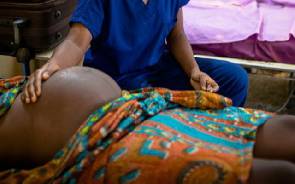| | General News 
[ 2017-02-26 ] 

Bawku hospital records 20 maternal deaths in two years
The Bawku Presbyterian hospital in the Upper East
Region has recorded 20 maternal deaths in the past
two years.
Statistics from the maternity department of the
hospital show that six mothers died in 2014 while
ten mothers lost their lives and babies in 2015
and 2016 respectively.
The deaths were the highest figure of maternal
deaths in the hospital in recent times.
Speaking in an interview with the Ghana News
Agency in Bawku, Dr Clement Opong, the Medical
Director of the hospital attributed the cause of
the maternal mortality to poor or non patronage of
antenatal care during pregnancy and unsafe
abortion.
He urged pregnant women to seek the right medical
care and avoid consulting quack doctors as that
was dangerous to their health.
He asked mothers to seek early health care when in
labour and avoid delay as that had over the years
been a major cause of maternal mortality in the
area.
“Pregnant women at antenatal services are
advised on how to take care of themselves, best
foods to eat, exercises, and good hygiene. They
are also monitored and treated of any diseases and
infections they might get and with all this,
unsafe abortions and maternal mortality would be
eradicated from the communities”, he said.
However, the hospital witnessed a high number of
deliveries where a total number of 2,717 mothers
were delivered of 2,744 babies in 2016 as against
2,654 deliveries in 2014 and 2,601 deliveries in
2015.
Out of the 2,744 babies born last year, 1,444 were
male while 1,300 were females.
Dr Opong called on the community and other social
agents to embark on reproductive health education
to protect the reproductive rights of young girls
in the area as child-marriage had become rampant
and needed urgent attention.
Madam Alima Seidu, Deputy Director of Nursing
Services in charge of the maternity ward said the
ward was under staffed and had contributed to poor
service delivery in the area.
Madam Seidu said the number of midwives at the
department was too low and unable to meet the
services demanded by the clients and had become a
worry to both the service provider and the
clients.
She called on government, philanthropist and
nongovernmental organizations to help the
maternity ward meet its responsibilities. Source - GNA

... go Back | |




